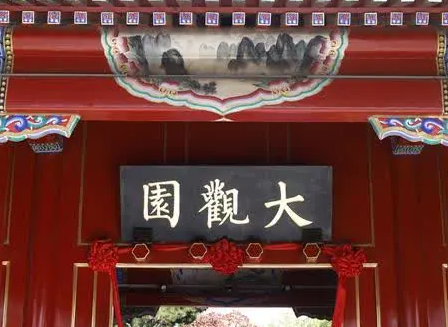In the ancient Chinese literary classic "Dream of the Red Chamber", the marital relationship between Lady Wang and Bao Chai has always been a topic of hot discussion among readers. As the granddaughter of Lady Jia, Bao Chai married the second son of the Jia family, Baoyu, and became Lady Wang's daughter-in-law. However, did this marriage receive Lady Wang's sincere blessings? Did she regret marrying Bao Chai? This article will explore this issue from the perspective of the characters' personalities.

First, we need to understand Lady Wang's personality characteristics. Lady Wang is a typical noblewoman figure in a feudal society. She is intelligent and cunning, but also somewhat snobbish and scheming. She holds a prominent position in the Jia family and has a great influence on family affairs. When it comes to marriage, Lady Wang places great emphasis on matching social status, believing that marriage is a reflection of family interests. Therefore, when choosing a daughter-in-law, she naturally tends to favor those women who come from prominent families and have good manners.
Bao Chai is precisely such a woman. She comes from a wealthy family with good breeding and both talent and beauty. Her emergence undoubtedly meets Lady Wang's expectations for a daughter-in-law. However, this does not mean that Lady Wang is completely satisfied with this marriage. In fact, from the descriptions in "Dream of the Red Chamber", Lady Wang's attitude towards Bao Chai has always been relatively cold. Although she respects Bao Chai on the surface, she always sides with Baoyu at crucial moments, even sacrificing Bao Chai's interests. This attitude makes people wonder whether Lady Wang really likes Bao Chai.
So, did Lady Wang regret marrying Bao Chai? To some extent, the answer is yes. There are several reasons:
1. The emergence of Bao Chai made Lady Wang feel threatened in her family status. Bao Chai's beauty and talent made her the focal point in the Jia family, which made Lady Wang feel pressured and worried that her own status might be shaken. Therefore, she developed a certain degree of hostility towards Bao Chai.
2. Bao Chai's character and breeding made Lady Wang feel inferior. Bao Chai's gentle and cultured demeanor made Lady Wang feel that she appeared vulgar in comparison. This sense of inferiority made Lady Wang even more alienated from Bao Chai.
3. The deep affection between Bao Chai and Baoyu worried Lady Wang about potential damage to family interests. In "Dream of the Red Chamber", Baoyu has always had a deep affection for Bao Chai. This worried Lady Wang that if Baoyu and Bao Chai married, the family's interests would be compromised. Therefore, to some extent, she hoped that Baoyu would marry a woman from a lower social status.
In summary, from Lady Wang's personality characteristics and her attitude towards Bao Chai, we can draw the conclusion that Lady Wang did regret marrying Bao Chai. However, this regret did not stem from her dissatisfaction with Bao Chai herself, but from her concerns about family status, her own inferiority complex, and family interests. This also reflects the tragic fate of women in feudal society: their marriages are often controlled by family interests, and they are unable to pursue true happiness.
Disclaimer: The above content is sourced from the internet and the copyright belongs to the original author. If there is any infringement of your original copyright, please inform us and we will delete the relevant content as soon as possible.































